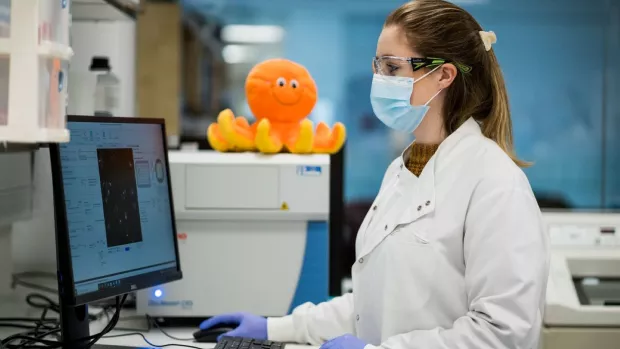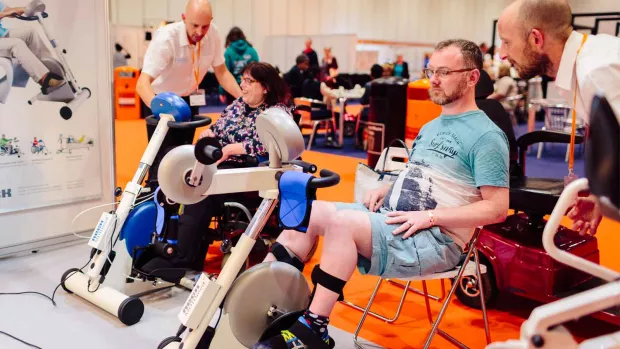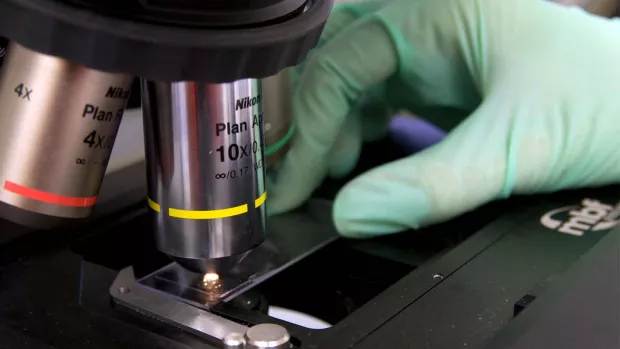
'I feel privileged to be involved' - what it's like to help researchers choose treatments for Octopus
Lyndsey Shellard is a member of our Research Network. She's been helping identify treatments that could be tested in our new clinical trial, Octopus. Here, she tells us what it's like.
My involvement with Octopus began in 2019 when I was invited to join the ‘Expert Consortium on Progression in MS Clinical Trials'. What a mouthful! Thank goodness the trial was later named Octopus.
It's called that because several different drugs and a placebo can be measured against each other at the same time. The ground-breaking trial design also means new potential drugs or ineffective drugs can be swapped in and out of the trial, without having to restart the whole thing.
One of our roles in the Consortium was to come up with a shortlist of drugs to recommend to the team running Octopus.
Read Professor Denise Fitzgerald's perspective on selecting treatments for Octopus
Would people be willing to take the drugs?
As a person with MS, I was sent a long list of potential drugs to review, and asked to score each drug. Ultimately, my role was to help the group assess whether people with MS would be willing to take the drug consistently. And if they wouldn't drop out of the clinical trial.
I looked at:
- Administration – was it a tablet, injection or infusion?
- How often would it need to be taken?
- Special requirements for taking the drug. For example, if you need a full or empty stomach.
- Could it be taken by women who were thinking about getting pregnant?
- What were the monitoring regimes (like whether you’d need regular blood or urine tests) and would they be acceptable for people with MS?
- What level of side effect I thought people with MS might be willing to tolerate if it meant they might slow the progression of their MS?
Interestingly, this raised different opinions amongst the scientists and Research Network members about which drugs should be ranked highest. And it showed how important it is to consider the views of the people who would actually be taking the drug.
Meeting with eminent research scientists
So I went along to my first meeting and was confronted with a very busy meeting room. There were MS Society staff, other Research Network members and over 20 leading MS research scientists. I remember thinking, 'wow this is exciting' and that it was going to be something very special for MS research.
Each drug was discussed. As well as the scientific viewpoints about the drug’s suitability, the Consortium really wanted to hear our opinions.
The drugs were ranked. At the end of the day, we'd gone from 14 drugs to five potential candidates.
Joining the Treatment Advisory Committee
After this, I and two other people with MS were invited to join the Octopus 'Treatment Advisory Committee’. This group would further assess and shortlist drugs for Octopus and discuss new potential candidates.
This process continued throughout the COVID-19 pandemic and we now regularly meet on Zoom.
Last year, we recommended to the trial team the first drugs to be tested when Octopus opens.
Feeling like part of the team
As Research Network members and people with ‘lived-experience’ of MS, our views are very important. We always feel like we're heard and our concerns are valid and taken into consideration. We really feel like we're part of the team delivering Octopus.
I feel very privileged to be involved in this project. And hope that in some small way I'm helping find solutions to slow and ultimately stop the progression of MS.




